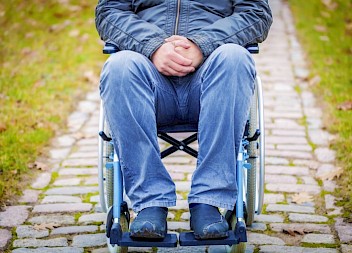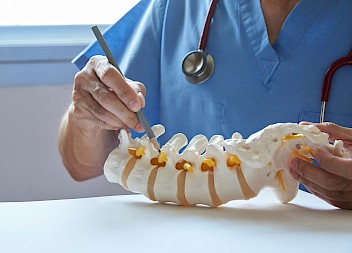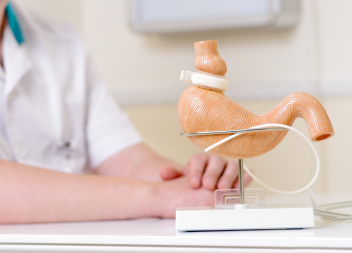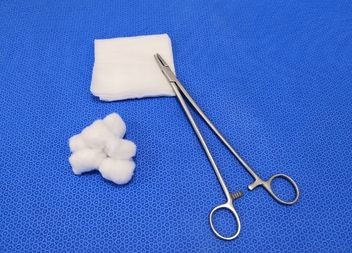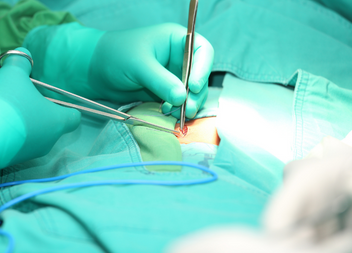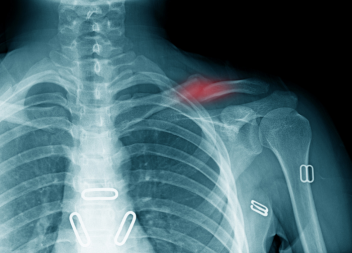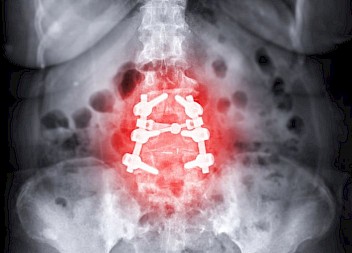Woman in Her 80s Awarded Compensation After Private Hospital Staff Failed to Manage Her Sodium Levels Following Knee Replacement Surgery.
An elderly woman who underwent knee replacement surgery to relieve chronic pain went into adrenal crisis and hyponatremia due to failures with her post-operative care.
Hyponatremia is where sodium levels in the blood become dangerously low and can lead to life-threatening swelling in the brain.
Christine Brown recently recovered an out-of-court settlement of £65,000 for a woman who suffered excessive water intake after being wrongly told by a physiotherapist to drink four litres of water a day post-surgery. Nursing staff failed to monitor her fluid intake with properly completed fluid balance charts and failed to correct the physiotherapist’s advice. They also failed to maintain an existing prescription of steroid medication which was needed to prevent adrenal crisis. This combination of failures severely diluted the Claimant’s sodium levels causing her to have sickness, hallucinate and become unresponsive.
Due to the post-surgical complication of hyponatremia, which lasted seven weeks, she couldn’t partake in rehabilitation so has been left with permanent stiffness in the knee, as well as accelerating deterioration of her pre-existing back and knee pain. Her experience also caused nightmares and exacerbated her pre-existing suffering of anxiety, depression and adjustment disorders for which she now needs medication and therapy.
The Claimant ‘C’ had long-term arthritis that caused back and knee pain. In 2017, her right knee had become so severely painful and unstable that she was offered knee replacement surgery. Due to delays owing to episodes of back pain, this was finally scheduled for March 2018 at a private hospital but as an NHS patient. C was 82 at the time of surgery.
C had been taking steroid medication since 2016 so was at risk of adrenal crisis during surgery. This is because surgery and anaesthesia can provoke an adrenal crisis in a patient who is a long term user of steroid medication. An adrenal crisis occurs when there is insufficient cortisol secreted in the body which is potentially life-threatening if not treated. It is therefore standard practice to give steroid supplementation during surgery in the form of intravenous hydrocortisone and supplement this with an increased dose of oral or intravenous steroids in the first 48 hours after surgery.
In accordance with this standard practice, the anaesthetist administered a dose of hydrocortisone 100mg intravenously during surgery. Guidelines state that there is only a risk of adrenal crisis in patients taking 5mg of steroids daily; C’s dosage was 4mg so this didn’t trigger the guidance.
However, the nursing staff were under a duty to ensure that C’s normal prescription of steroid medication was maintained and the surgeon had, in fact, noted that C’s normal dose of steroid needed to be covered throughout surgery and recovery. The drug chart indicated that following surgery C was prescribed her normal steroid dose of 1mg four times daily, but she was only given 1mg steroid once a day which suggests she was steroid deprived.
C’s sodium levels had been recorded during surgery as 140 – within the normal range.
While on the recovery ward, C suffered persistent nausea and vomiting thought to be a reaction to the anaesthetic. However, two days later she had an appointment with the physiotherapist who advised C to drink two two-litre jugs of water a day – so four litres. To do this, they recommended she drink a glass of water at every TV ad break, which is usually every 15 minutes.
This advice was incorrect. Nurses should have monitored C’s fluid intake on a chart which would have revealed that she was drinking too much, and corrected the physiotherapist’s recommendation.
The following day, C’s nausea and sickness increased and she also began to hallucinate and her pupils dilated. A nurse called for a doctor who arrived in 45 minutes and noted involuntary jerky movements, recommending regular reviews. However, 25 minutes later C was found slumped in a chair, breathing heavily and unresponsive.
She was transferred to intensive care at a nearby NHS hospital where her sodium level was recorded at 113 – anything under 120 is severely low. She was diagnosed with hyponatremia and given a high concentration of saline. She also needed intubation and ventilation due to the loss of consciousness.
C stayed in the ITU for six days, followed by a further ten-day stay in hospital. But for the post-surgical errors, C could have been discharged after a week and her pain slowly improved.
Due to permanent psychiatric damage, and stiffness in the knee, C is now unable to drive and tend to her garden like she used to. She has also lost confidence in walking and her sciatica, back and knee pain has quickly deteriorated.
Christine settled the case at the end of July 2022 for £65,000 with an estimated breakdown of £28,500 general damages for C’s pain and suffering and £36,500 special damages for past and future financial losses.


